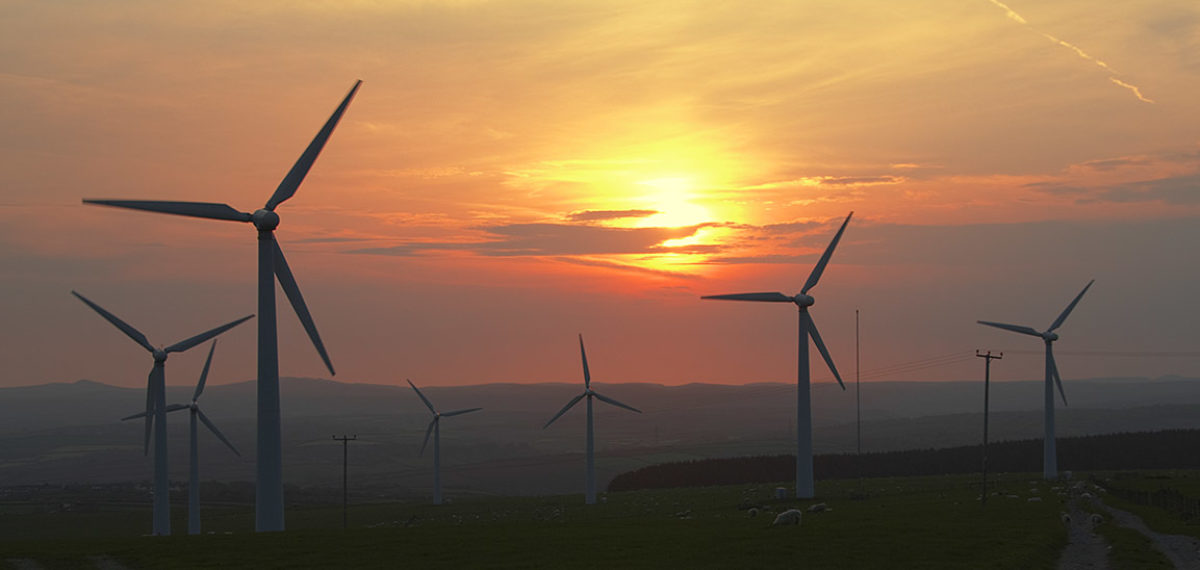It is now very well known that the UK has achieved big cuts in greenhouse gas emissions in recent decades. But the notion that the UK is in the lead in action on climate change need to be taken with a bucket load of salt. Britain’s apparent big reductions in greenhouse gas emissions reductions since 1990 are heavily based on British de-industrialisation and domestic impoverishment and less on deliberate policies to reduce emissions than may be claimed.
For a start the UK’s expansion in industrial output, which is much more energy intensive compared to service industries, has been much slower than other industrialised nations. German industrial output increased by around 62 per cent since 1991 (German reunification). US industrial output increased by around 130 per cent in that period. By comparison the UK’s industrial output was 44 per cent higher in 2022 compared to 1990.
Home energy efficiency has improved in recent years, albeit at a far slower pace than should have been the case. The Conservatives have practically eliminated the energy conservation programme compared to the one introduced in the last years of the last Labour Government. The UK’s housing stock is amongst the most energy-inefficient in Europe and the poor have been hammered by high bills in the last year.
What is not usually mentioned is that people in the UK have a rather smaller living space (and thus less need for heating) compared to other rich countries. Floorspace per person appears to have increased much less compared, for example, to Germany since 1990, and hardly at all since around 2008.
The Resolution Foundation recently reported that the average floorspace for those renting properties has reduced by over a sixth in the last 20 years. Relative impoverishment is reducing heating needs relative to, say, Germany, rather than greater improvements in insulating new or existing homes. It is impoverishment that has done a lot to reduce home energy consumption
It is true that the UK has shifted away more quickly from coal to natural gas than other Western nations. However much of this move came as a result of privatisation, liberalisation and a wish to dish the coalminers rather than any concern with reducing greenhouse gas emissions. Other western countries are busy catching us up on fuel shifting away from coal, with the biggest focus being on renewables. Moreover, in effect, the UK’s priority has been to switch from coal to natural gas rather than to renewables.
Other countries are eclipsing the UK in developing renewable energy. In the 2018 to 2022 period world renewable energy output increased by 70 per cent compared to just 23 per cent in the UK. Britain competes with Hungary for the lowest European per capita installation of heat pumps. Moreover, when it comes to absolute comparisons with other countries, the UK is not stellar. Out of 38 OECD countries the UK comes in eleventh place in terms of carbon emissions. In terms of per capita production of wind and solar power, in 2022 the UK lagged behind many developed countries including all the Nordic nations, the USA, Portugal, Spain, Australia, Ireland, Germany, the USA, Greece, Belgium and Portugal. In falling behind other countries in implementing renewable energy and energy efficiency we are missing out on ways to lower consumer bills.
The UK need to boost green industrial development much more than done by this Government. Then we can speed up decarbonisation. In doing so we shall counter deindustrialisation and help consumers by cutting their bills.
Dr David Toke is author of ‘Energy Revolutions – Profiteering versus Democracy’ to be published by Pluto Press https://www.plutobooks.com/9780745349268/energy-revolutions/. He is also Reader in Energy Politics at the University of Aberdeen

Looking at the government’s figures, a lot of our emission reduction comes from reducing our waste (we’ve sent it abroad) and from ‘decarbonising’ our electricity supply. However, since it’s biomass that has largely filled the coal gap, there is no gain – except by deceptive accounting. Most of our biomass for Drax and Lynemouth comes from forests in the US, felled and chipped and shipped and burnt – with apparently zero emissions.